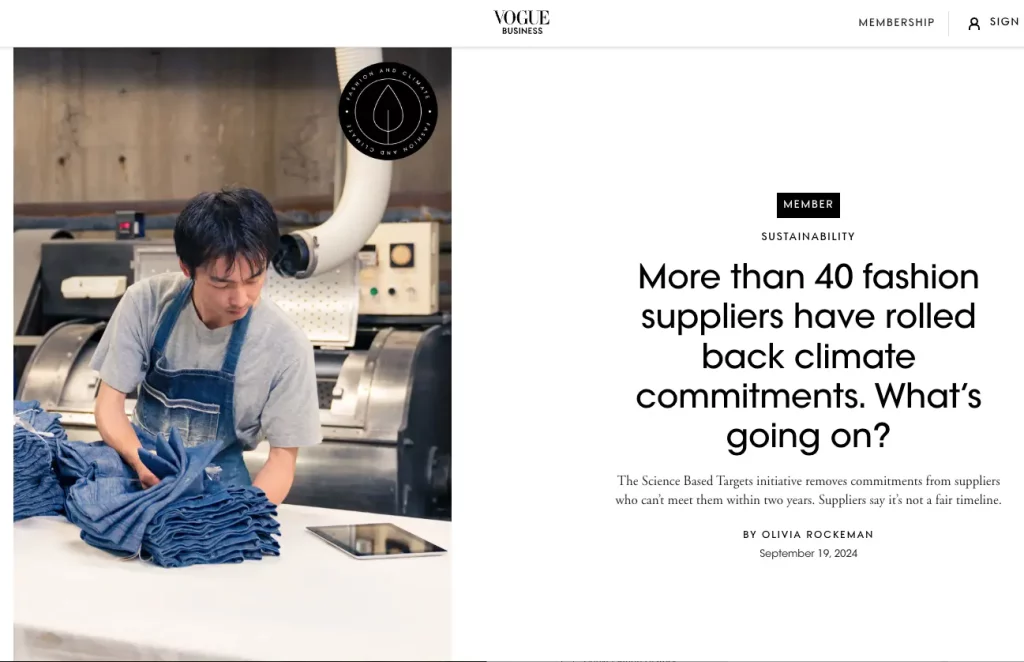Vogue Business | As sustainability pressures increase, over 40 fashion suppliers have withdrawn from their climate goals, citing cost and resource constraints. This shift highlights the systemic challenges in achieving industry-wide sustainability, emphasizing the need for stronger collaboration and support between brands and suppliers to stay aligned with climate targets.
For an article in Vogue Business, Quantis’ Global Fashion + Chemicals Lead Philipp Meister was interviewed to share his insights into what’s behind the rollback.
When manufacturers don’t meet their commitments to set targets, brands are directly impacted, Meister says. That’s because the majority of their emissions come from the supply chain, which they don’t have direct control over. While many of the brands that Quantis works with are communicating directly with suppliers to help them set targets, others in the industry are simply not aware of whether or not their manufacturers have made climate commitments at all.

Latest resources

How digitalization is unlocking a new era of sustainability in fashion...
While digitalization alone doesn’t guarantee perfect accuracy, it plays a crucial role in many ways like fostering more meaningful supplier engagement, boosting data quality and...

Why an environmental sustainability strategy without nature is incomplete
Businesses have an essential role to play in reversing the trend of nature loss — and a lot to lose from inaction.

Purpose: The 5th ‘P’ in the sustainable food + beverage marketing ...
The 5th 'P' in the marketing mix, purpose, adds depth to product, price, place, and promotion, enabling greater sustainability and impact.
